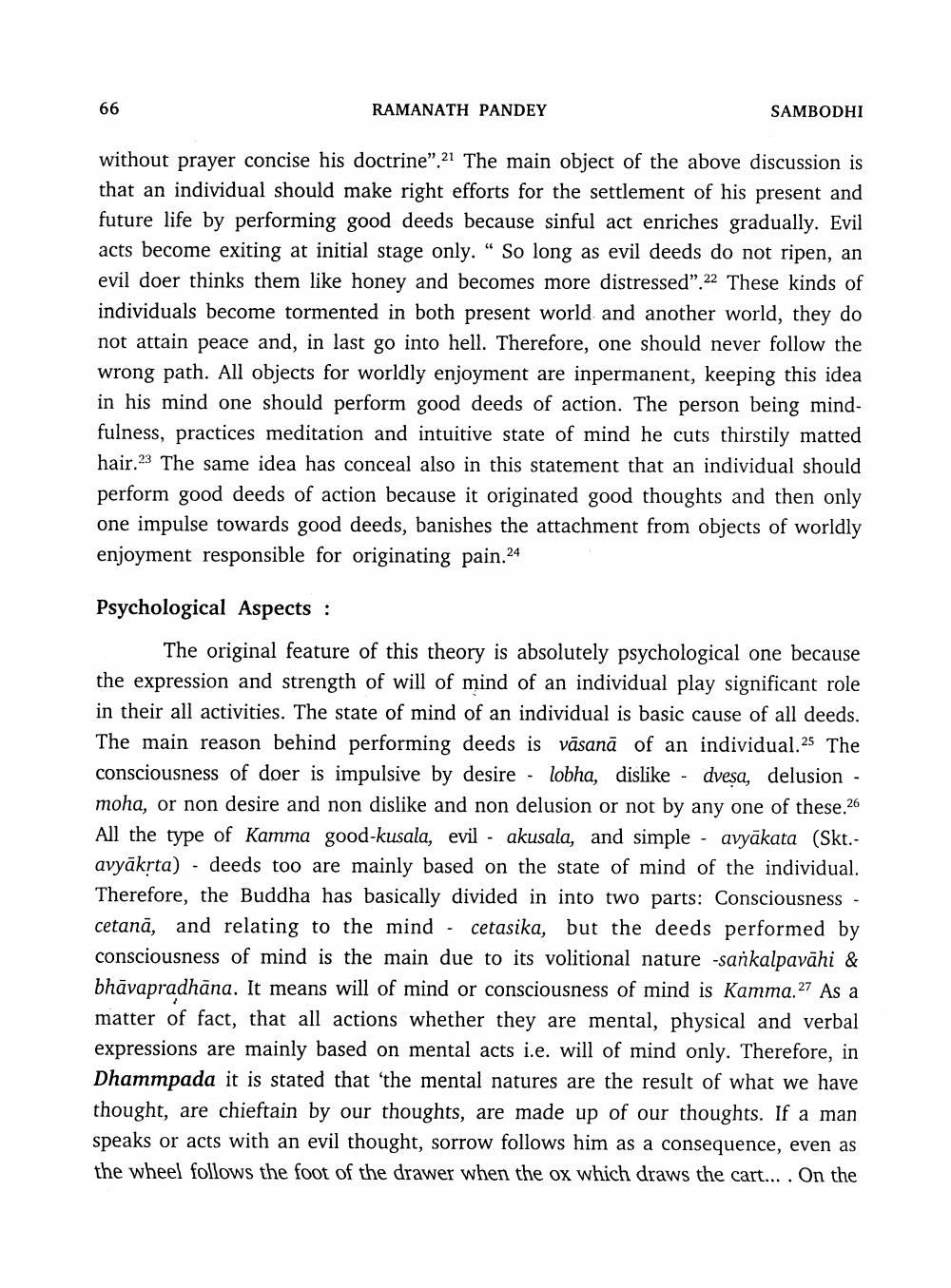________________
66
RAMANATH PANDEY
SAMBODHI
without prayer concise his doctrine”.21 The main object of the above discussion is that an individual should make right efforts for the settlement of his present and future life by performing good deeds because sinful act enriches gradually. Evil acts become exiting at initial stage only. “So long as evil deeds do not ripen, an evil doer thinks them like honey and becomes more distressed". 22 These kinds of individuals become tormented in both present world and another world, they do not attain peace and, in last go into hell. Therefore, one should never follow the wrong path. All objects for worldly enjoyment are inpermanent, keeping this idea in his mind one should perform good deeds of action. The person being mindfulness, practices meditation and intuitive state of mind he cuts thirstily matted hair.23 The same idea has conceal also in this statement that an individual should perform good deeds of action because it originated good thoughts and then only one impulse towards good deeds, banishes the attachment from objects of worldly enjoyment responsible for originating pain.24
Psychological Aspects :
The original feature of this theory is absolutely psychological one because the expression and strength of will of mind of an individual play significant role in their all activities. The state of mind of an individual is basic cause of all deeds. The main reason behind performing deeds is vāsanā of an individual.25 The consciousness of doer is impulsive by desire · lobha, dislike - dvesa, delusionmoha, or non desire and non dislike and non delusion or not by any one of these.26 All the type of Kamma good-kusala, evil - akusala, and simple - avyākata (Skt.avyāksta) deeds too are mainly based on the state of mind of the individual. Therefore, the Buddha has basically divided in into two parts: Consciousness - cetanā, and relating to the mind - cetasika, but the deeds performed by consciousness of mind is the main due to its volitional nature -sankalpavāhi & bhāvapradhana. It means will of mind or consciousness of mind is Kamma.27 As a matter of fact, that all actions whether they are mental, physical and verbal expressions are mainly based on mental acts i.e. will of mind only. Therefore, in Dhammpada it is stated that 'the mental natures are the result of what we have thought, are chieftain by our thoughts, are made up of our thoughts. If a man speaks or acts with an evil thought, sorrow follows him as a consequence, even as the wheel follows the foot of the drawer when the ox which draws the cart... . On the




